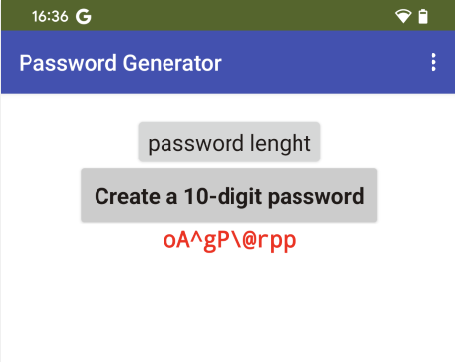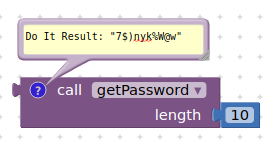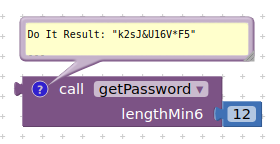Password.aia (3.1 KB)

A similar approach with blocks was proposed in [Free] Random Password Generator Extension - #4 by dora_paz - Extensions - Kodular Community
No, why ...?
Your replies show the uselessness of my extension ![]()
Don't worry
one of your greatest work will be deletd and world cant see your talent its ok its still welcome
you may delete it but i wont
i like this extension 
This handles all these:

This extension can be used to break Wi-Fi passwords? 
 Really? I never thought about this!
Really? I never thought about this!
If you want to produce impenetrable passwords, use a
cryptographic function. Typically named something like CryptRandom.
You can test the quality of the passwords you produce here:
and here:
Reworked mine a bit to include removing duplicate characters and set minimum length to 6.

Given the variability of the length of the password, and that Wi-Fi passwords can contain spaces, it's probably going to take you a veryyy long time.
Just my two cents' worth, but it'd be great if the app could cipher the password with a randomly generated seed for extra impenetrability.
As far as my math skills don't fool me, this should increase the chances of hacking a password.
(As soon as you use a search algorithm that doesn't allow duplicate chars. But maybe I'm wrong.)
I don't know, is 1111 more difficult to hack than 1234 ?
In 2013, based on a collection of 3.4 million passwords each containing four digits, the DataGenetics Web site reported that the most commonly used four-digit sequence (representing 11 percent of choices) was 1234, followed by 1111 (6 percent) and 0000 (2 percent).
From - The Mathematics of (Hacking) Passwords - Scientific American
So, 1234 is more common than 1111.
That's not the question, but eliminating duplicate chars necessarily reduces the set of possibilities (that is, possible permutations without repetitions).
Enterprise level stuff  :
: